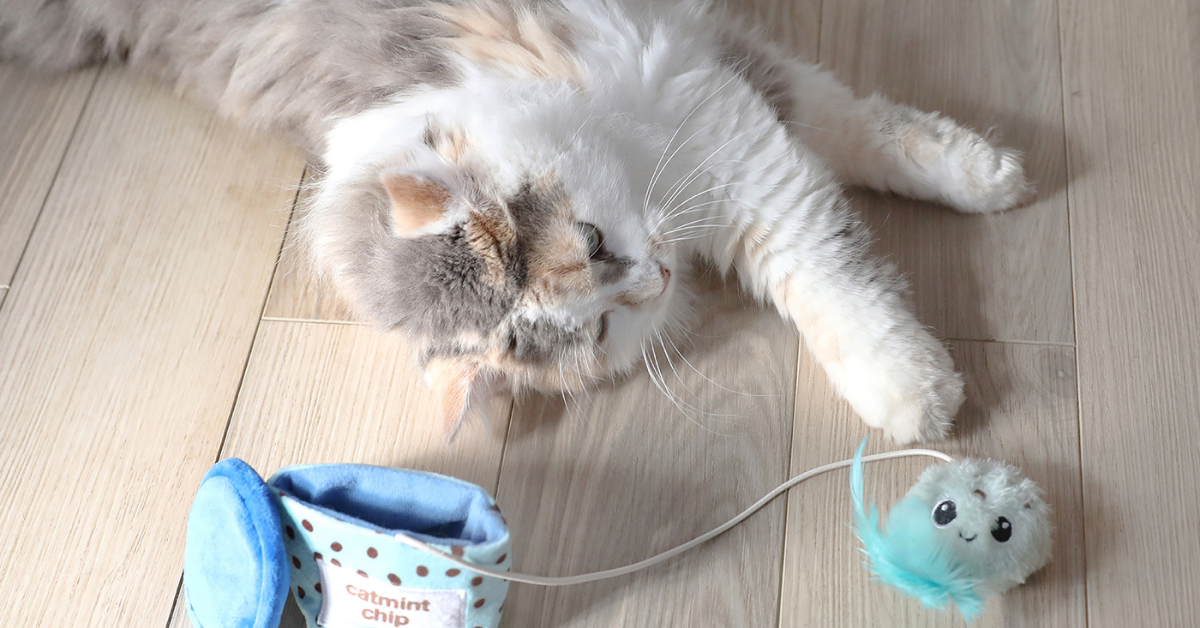Stress-Free Tips for Leaving Pets Home While on Vacation

Planning a vacation can be a lot of fun but can also be stressful for pet owners. You want to make sure your furry friends are safe and comfortable while you're away. Whether you’re a cat owner worried about the litter box or a dog owner considering a dog sitter, we’ve got you covered. In this blog, we’ll share practical tips to keep your pets happy and healthy during your trip.
Deciding If It's Safe to Leave Your Pet Home Alone
First, determine if it’s safe to leave your pet home alone. Generally, it’s not recommended to leave pets home alone for extended periods, as they can become bored, anxious, or even destructive. However, certain pets and breeds are more suited to solo time than others.
For instance, some dog breeds, like Yorkshire terriers, basset hounds, and beagles, are known to handle alone time better than others. On the other hand, cats can typically be left alone for up to 2-3 days as long as they have everything they need, but younger kittens, older cats, or solo cats should only be left for 1-2 days.
Moreover, puppies require even more attention and should not be left alone for more than 2 hours a day to avoid developing separation anxiety. Adult dogs generally manage alone time better and can be left alone for up to 6 hours a day, but leaving them for a few days might not be ideal.
Behavioral issues and separation anxiety can significantly impact your pet’s ability to stay home alone. Dogs with these issues may become distressed, destructive, or even sick when left alone for long periods. If your pet has shown signs of anxiety or destructive behavior, it might not be safe to leave them alone without some form of intervention.
Lastly, when in doubt, talk to your veterinarian. They can provide tailored advice based on your pet’s specific needs and health conditions. Consulting a professional is always a good step to ensure your pet’s well-being, especially for a dog owner like you.
Preparing Your Home for Your Pet's Stay
Once you’ve determined that your pet can handle being alone, the next step is to prepare your home. Pet-proofing your home is essential to ensure your furry friend’s safety. Here are some steps to follow:
- Secure trash cans to prevent pets from getting into them and possibly consuming something harmful.
- Remove any small objects that your pet might swallow or choke on.
- Make sure all medications are stored out of reach.
- Ensure any houseplants are safe for pets or are placed in an area where your pet cannot access them.
Creating a comfortable and safe space for your pet is equally important. For dogs, ensure they have a temperature-controlled room, lots of water, and a safe space where they feel secure. This could be a specific room or a cozy corner with their bed and favorite toys.
A well-prepared home environment will make your pet’s stay more comfortable and safe. Now that your home is ready let’s ensure your pet’s basic needs, like food and water, are well taken care of.
Setting Up Food and Water

Keeping your pet well-fed and hydrated is a top priority when you’re away. Automatic feeders like Aspen Pet Lebistro Programmable Food Dispenser are an excellent solution to maintain your pet’s regular feeding schedule. These devices can be programmed to dispense specific portions at set times, ensuring your pet’s diet remains consistent. This way, you don’t have to worry about food left out becoming stale or your pet overeating.
Water fountains are another great addition to your pet’s home environment. They provide a continuous flow of fresh, filtered water, which can be more enticing for your pet to drink. Plus, they prevent the water bowl from being knocked over, ensuring your pet always has access to water.
By setting up automatic feeders and water fountains, you can rest assured that your pet’s basic needs are met. But what about keeping them entertained and comfortable during their cat's stay?
Providing Entertainment and Comfort
When leaving pets at home, make sure they are entertained and comfortable. One way to provide this comfort is by using pet steps and ramps, which help pets easily access their favorite resting spots, minimizing the risk of injury and promoting relaxation. Chew toys are also essential, as they keep pets engaged for extended periods, satisfying their instinct to chew and preventing destructive behavior.
Fetch toys can be a fantastic source of entertainment, especially if a friend or pet sitter stops by to engage in play. These toys encourage physical activity, vital for maintaining a healthy weight and mental stimulation. Indoor dog toys are perfect for providing interactive playtime within the home, ensuring pets stay active and mentally sharp even in a confined space.

In addition, plush toys offer comfort and companionship, often becoming a pet's favorite cuddle buddy during your absence. Their soft texture provides a sense of security, helping to reduce anxiety. For younger pets, puppy toys are designed to be gentle on developing teeth and gums, making them ideal for teething puppies. These toys often have bright colors and exciting textures that captivate their attention.
By incorporating these various toys and accessories, you can create a stimulating and comforting environment for your pets while you are away. This not only keeps them entertained but also helps to alleviate any anxiety or stress they may feel during your absence,
Monitoring Your Pet Remotely
Monitoring your pet remotely provides peace of mind and ensures their well-being. Pet cameras are a fantastic tool for this purpose, allowing you to check on your pets at any time. Many pet cameras connect to your phone and include a microphone, so you can interact with your pet even when you’re not home.
That is why they are invaluable in emergencies and allow you to react quickly if something seems amiss. With the ability to monitor and interact with your pet, you can ensure they are safe and happy while you’re away. But what if an emergency arises and you’re not able to get home quickly?
Ensuring Access to Help in Case of Emergencies
In case of emergencies, you need to have a backup plan. Ensure someone nearby, like a trusted neighbor or friend, has a key to your home for emergency access. Alternatively, you can leave a key at a friend’s house or hidden outside in a secure location.
Developing a buddy system with neighbors, friends, or relatives ensures someone can care for or evacuate your pet if needed. For quick access, keep an emergency contact list, including your vet and local animal control office. This way, you can ensure your pet receives the care they need even in unforeseen circumstances.
Considering Professional Pet Sitters and Boarding
If leaving your pet home alone isn’t an option, consider professional pet sitting and boarding. The pet sitting industry is unregulated, so finding a reputable dog sitter or pet sitter, even if they aren’t necessarily bonded or insured, is essential. When you need someone to pet sit, professional pet sitters can provide personalized care in your home, ensuring your pet remains in a familiar environment.
Boarding facilities offer the following benefits:
- A safe and structured environment with trained staff to handle emergencies
- Options for socialization and activities, such as group play or swimming
- A structured routine that can be beneficial for pets accustomed to a regimen
To make your pet’s stay more comfortable, pack their favorite bed, usual food, and treats before boarding. This helps maintain some of their comforts while you enjoy your home on vacation.
Now, let’s address a common issue: separation anxiety.
Addressing Separation Anxiety
Separation anxiety can be a significant concern for pet owners. Gradually acclimating your dog to being alone by practicing short departures and extending the duration over time can help reduce separation anxiety. It’s also beneficial to avoid making a fuss when leaving or returning home; keep goodbyes and greetings casual to prevent heightening your dog’s anxiety.
Spending extra time with your dog before leaving can help them feel relaxed and content. For severe separation anxiety, consulting a professional dog trainer or behavior specialist can provide tailored strategies. Interactive pet cameras with two-way audio can also help reduce separation anxiety by allowing you to communicate with your pet.
Final Preparations Before You Leave
Before heading out, make sure to:
- Remove all dangerous items, like electrical cords and hazardous foods, out of reach to prevent accidents
- Check that the temperature in the room is comfortable
- Provide access to water to keep your pet hydrated
Create a safe space for your dog, whether a crate or a designated house area with a doggy door. Use door stops or tie the door open to ensure your pets aren’t stuck in a room while you’re away. Clean the litter box before leaving for a trip, and consider adding an extra litter box if needed.
These final preparations will ensure your pet’s safety and comfort while you’re away on a weekend trip, setting the stage for a stress-free trip for you and your pet and keeping everything up to date.
Ensure Your Pet’s Comfort and Safety While You're Away
Leaving your pet home while on vacation doesn’t have to be stressful. By assessing if it’s safe to leave your pet alone, preparing your home, setting up food and water, providing entertainment, monitoring remotely, ensuring emergency access, considering professional pet sitters, addressing separation anxiety, and making final preparations, you can ensure your pet’s well-being.
Petmate offers a range of products to make this process easier. With these tips, you can enjoy your vacation with peace of mind, knowing your pet is safe and comfortable. Visit us today.
Previous article

Related posts
View all-

How to Train Your Dog in 2026: A Practical, Step-by-Step Guide
-

Keep Your Pets Safe During the Holidays
The holiday season brings joy, festivities, and a break from the usual routine. While you're enjoying the celebrations, it's important to remember that the holidays can present unique challenges for our furry family members. The new sights, sounds, and people can be overwhelming, and common festive items can pose unexpected risks.
Read Article -

Holiday Gifts for Every Pet Personality: The Ultimate Guide
The holiday season is finally here, and for many of us, that means finding the perfect presents for the ones we love most—our pets. Whether they are a steadfast dog who never leaves your side or an independent cat who graces you with their presence on their own terms, our pets are cherished members of the family. They deserve to celebrate right alongside us, stocking stuffers and all.
Read Article




